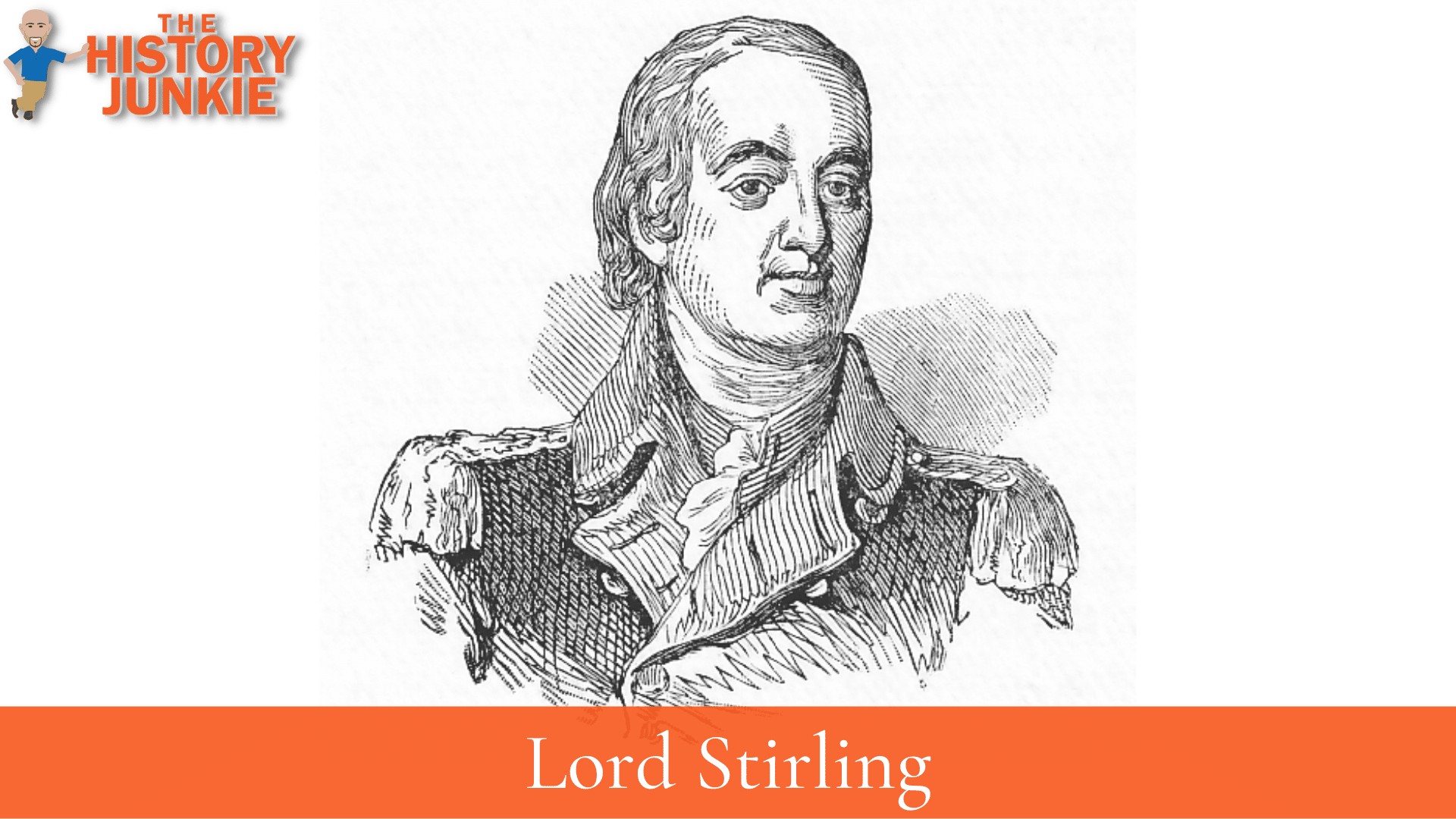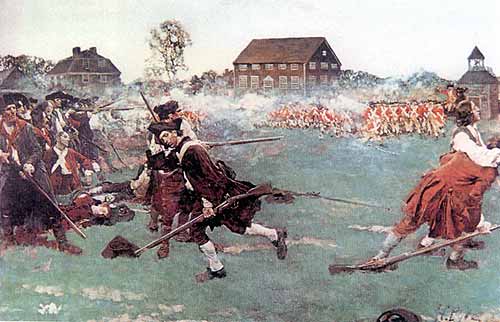William Alexander, AKA Lord Stirling, was an American General during the Revolutionary War who served with much distinction.

He was considered the male heir to the Scottish title of Earl of Stirling through Scottish lineage (being the senior male descendant of the paternal grandfather of the 1st Earl of Stirling, who had died in 1640), and he sought the title sometime after 1756.
Jump to:
His claim was initially granted by a Scottish court in 1759; however, the House of Lords ultimately overruled Scottish law and denied the title in 1762. He continued to hold himself out as "Lord Stirling" regardless.
Alexander is known for many actions of bravery, but the two that stand out were his enabling George Washington to escape during the Battle of Long Island and his work on exposing the Conway Cabal.
Washington had much trust in him.
American Revolution

When the first shots were fired at Lexington and Concord, Alexander was located in New Jersey. he was made a colonel in the New Jersey colonial militia and spent his own money to outfit his unit. He believed strongly in the American cause.
By March 1776, Lord Stirling would be appointed as brigadier general in the Continental Army by the Second Continental Congress. He received this appointment just months prior to the Declaration of Independence.
Long Island

After pushing the British out of Boston, the Americans turned their attention to defending New York. Unlike Boston, New York proved to be nearly impossible to protect because America lacked a navy.
Soon, when the British attacked, the Continentals were met with disaster.
At the Battle of Long Island, General Alexander fought bravely and withstood repeated attacks by the British Army. The British Army was superior to his forces, and despite his best efforts, the British General James Grant was able to push through and flank the Continentals.
Sterling ordered his brigade to retreat while he himself kept the 1st Maryland Regiment as rear-guard. Though heavily outnumbered, he led a counter-attack, eventually dispersing his men before being overwhelmed.
Stirling himself was taken prisoner, but he had held the British forces occupied long enough to allow the main body of Washington's army to escape to defensive positions at Brooklyn Heights, along the East River shoreline.
Later, under the cover of a miraculous fog that enveloped the river, Washington was able to barge his remaining troops and equipment across back to Manhattan Island and New York City.
Because of his actions at Long Island, one newspaper called Stirling "the bravest man in America," and he was praised by both Washington and the British for his bravery and audacity.
Later, a commemorative monument was erected at the site of the military engagements and embattled retreat, and the plot of land was deeded to the State of Maryland near Prospect Park as a sacred parcel of "blood-soaked Maryland soil." (Wikipedia)
Washington's Trust
General George Washington had a small inner circle, and the folks he trusted had to prove themselves to be trustworthy.
Throughout most of the war, Stirling was considered to be third or fourth in rank behind General Washington. At the Battle of Trenton on December 26, 1776, he received the surrender of a Hessian German mercenary regiment.
On June 26, 1777, at Matouchin, he awaited an attack contrary to Washington's orders. His position was turned, and his division was defeated, losing two guns and a hundred fifty men in the Battle of Short Hills.
Subsequent battles at Brandywine and Germantown in Pennsylvania during the campaign to defend the Patriot capital of Philadelphia and Monmouth in New Jersey cemented his reputation for bravery and sound tactical judgment.
He was one of the commanders that exposed the Conway Cabal, which wanted to remove Washington and replace him with Horatio Gates. His loyalty would again show itself at the Battle of Monmouth, where he showed tremendous bravery in the face of British Regulars.
Lord Stirling loved the bottle and was always known as a heavy drinker. Although he never had any accusation of drunkenness on the battlefield, he did drink heavily away from it.
He, unfortunately, died prior to America securing its independence in 1783. He never saw the freedom he dedicated much of his life.
